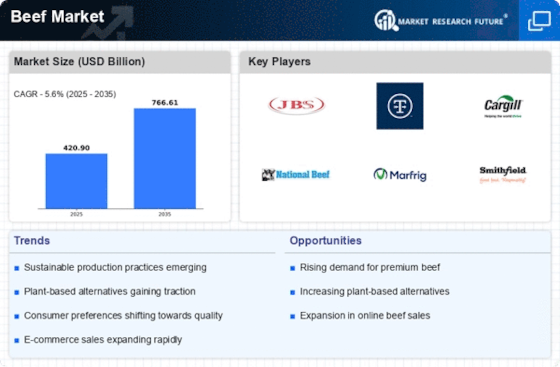Market Analysis
In-depth Analysis of Beef Market Industry Landscape
The beef market is a dynamic and multifaceted sector that experiences constant shifts in response to various factors such as consumer preferences, economic conditions, and global events. One prominent trend in recent years is the growing demand for sustainable and ethically sourced beef products. Consumers are increasingly concerned about the environmental impact of beef production and the welfare of animals. As a result, there is a rising preference for grass-fed and organic beef, which is perceived as more environmentally friendly and humane.
Another noteworthy trend is the influence of technology on the beef market. Digital platforms and e-commerce have revolutionized the way beef products are marketed and sold. Online platforms provide consumers with easy access to a wide variety of beef products, allowing them to compare prices, read reviews, and make informed purchasing decisions. Additionally, technology is being employed in the production process itself, with the use of data analytics and automation to enhance efficiency and optimize supply chain management.
Globalization has also significantly impacted the beef market trends. The interconnectedness of markets has led to increased international trade in beef products. This has implications for both producers and consumers, as access to a wider range of beef products from different regions becomes more readily available. Additionally, geopolitical events and trade agreements can have a substantial impact on the global beef market, influencing prices and supply chains.
Health considerations play a pivotal role in shaping market trends within the beef industry. With a growing awareness of health and wellness, there is an increasing demand for leaner cuts of beef and products labeled as hormone-free or antibiotic-free. The rise of alternative protein sources, such as plant-based and lab-grown meats, also contributes to the evolving landscape of the beef market. These alternatives are gaining popularity among consumers who are looking for protein options that align with their health and environmental concerns.
Government regulations and policies also play a crucial role in shaping market trends within the beef industry. Food safety standards, environmental regulations, and trade policies can impact the production, distribution, and consumption of beef products. Changes in these regulations can lead to shifts in market dynamics, influencing the practices of producers and the choices of consumers.


















Leave a Comment